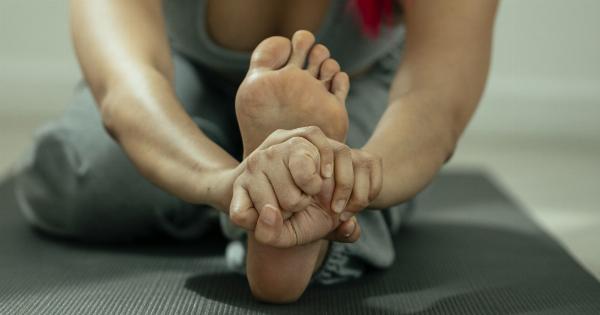Running is an excellent way to stay fit and healthy. Whether you are a seasoned runner or a beginner, it’s important to be aware of the things you should avoid after a running session.
These practices can have a significant impact on your recovery and overall performance. In this article, we will discuss the top 10 things you should avoid after finishing your run.
1. Skipping Post-Run Stretching
Stretching after a run is crucial for preventing muscle soreness and injury. It helps improve flexibility and range of motion while promoting blood flow to the muscles.
Many runners make the mistake of skipping their post-run stretching routine due to time constraints or lack of knowledge. Remember to allocate at least 10 minutes for stretching exercises such as hamstring stretches, calf stretches, and hip flexor stretches.
2. Neglecting Hydration
Proper hydration is key to maintaining optimal performance and avoiding dehydration. When you run, you lose a significant amount of fluid through sweat, and it is essential to replenish it.
Make sure to drink plenty of water or a sports drink with electrolytes after your run. Avoid consuming excessive amounts of caffeine or alcohol, as they can dehydrate your body.
3. Not Refueling with Proper Nutrition
After an intense running session, your body needs to replenish the energy stores it consumed. Skipping post-run meals or consuming unhealthy, processed foods can hinder your recovery and impact your training progress.
Instead, focus on consuming a balanced mix of carbohydrates, proteins, and healthy fats within 30 minutes to an hour after your run. Opt for nutrient-dense foods such as fruits, vegetables, lean meats, whole grains, and nuts.
4. Wearing Uncomfortable Shoes
Wearing worn-out or ill-fitting shoes can lead to discomfort, blisters, and even injuries. As a runner, invest in a good pair of running shoes that provide proper support, cushioning, and stability.
Avoid using your running shoes for other activities, as this can lead to faster wear and tear. Replace your shoes regularly to ensure they maintain their shock absorption properties.
5. Not Taking Time to Cool Down
Just as a warm-up before a run is essential, a cool-down period after your run is equally important. Cooling down helps bring your heart rate and body temperature down gradually.
After completing your run, dedicate 5-10 minutes to slow jogging or brisk walking. This will allow your body to transition from an intense workout back to a resting state and reduce the risk of muscle cramps or lightheadedness.
6. Ignoring Pain or Discomfort
While some muscle soreness is normal after a strenuous run, it’s important not to ignore any persistent pain or discomfort. Ignoring these warning signs can lead to more severe injuries in the long run.
If you experience any sharp or localized pain during or after your run, it’s advisable to consult a healthcare professional or a sports therapist. Early intervention can prevent minor problems from escalating into major ones.
7. Overlooking the Importance of Rest
Rest is an essential component of any training program. Without proper rest and recovery, your body may not adapt and become stronger. Overtraining can lead to decreased performance, increased risk of injury, and overall burnout.
It’s crucial to incorporate rest days into your running schedule and listen to your body’s signals. Take a day or two off every week to allow your muscles and joints time to recover.
8. Failing to Gradually Increase Intensity
If you’re looking to improve your running performance, it’s important to gradually increase your training intensity. Pushing yourself too hard too soon can lead to overuse injuries such as plantar fasciitis or shin splints.
Follow a structured training plan that gradually increases mileage, pace, or intensity. This progressive approach allows your body to adapt and reduces the risk of injury.
9. Not Listening to Your Body
Every runner’s body is unique, and it’s important to listen to yours. Pay attention to any unusual feelings or pain during and after your run.
If something doesn’t feel right, it’s better to stop and rest rather than pushing through. Pushing yourself when your body is telling you otherwise can lead to more severe injuries and potentially derail your training progress.
10. Skipping Adequate Sleep
Quality sleep is essential for athletic performance and overall health. During sleep, your body repairs and recovers from the physical stress it experienced during your run. Aim for 7-9 hours of uninterrupted sleep each night to ensure proper recovery.
Avoid caffeine, electronic screens, and stimulating activities that can interfere with your sleep quality.





























